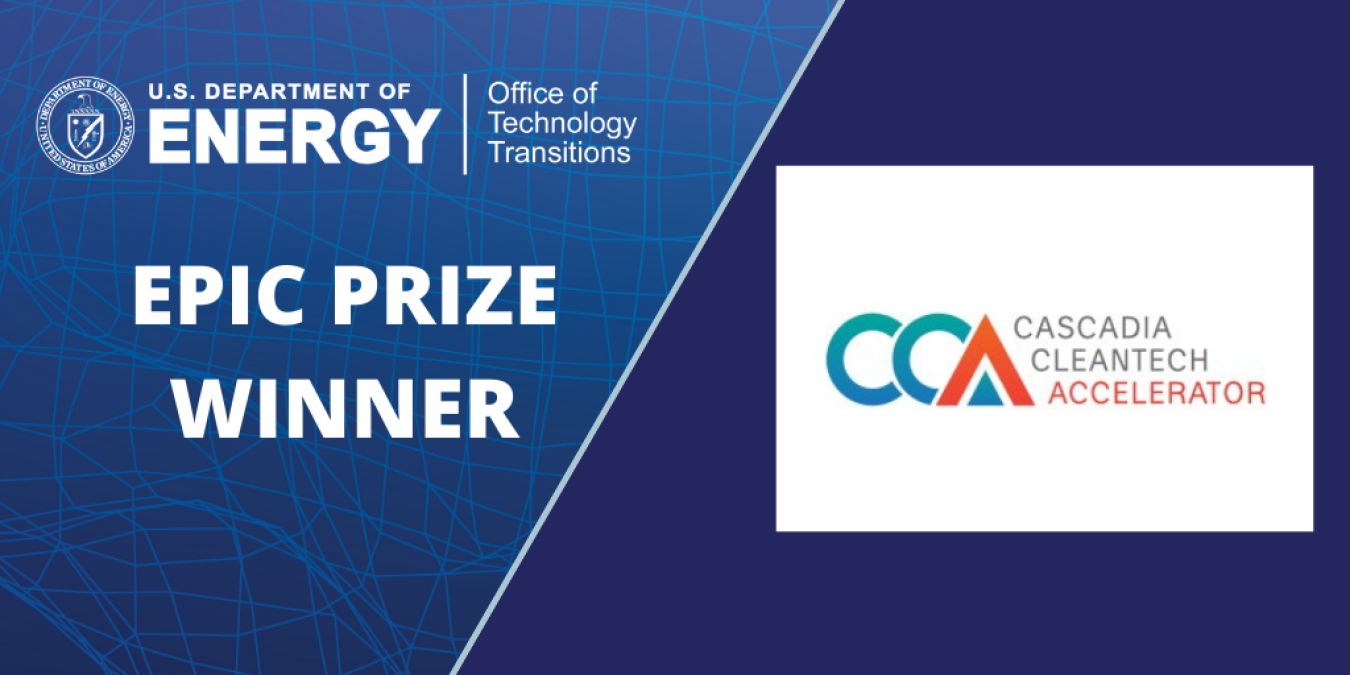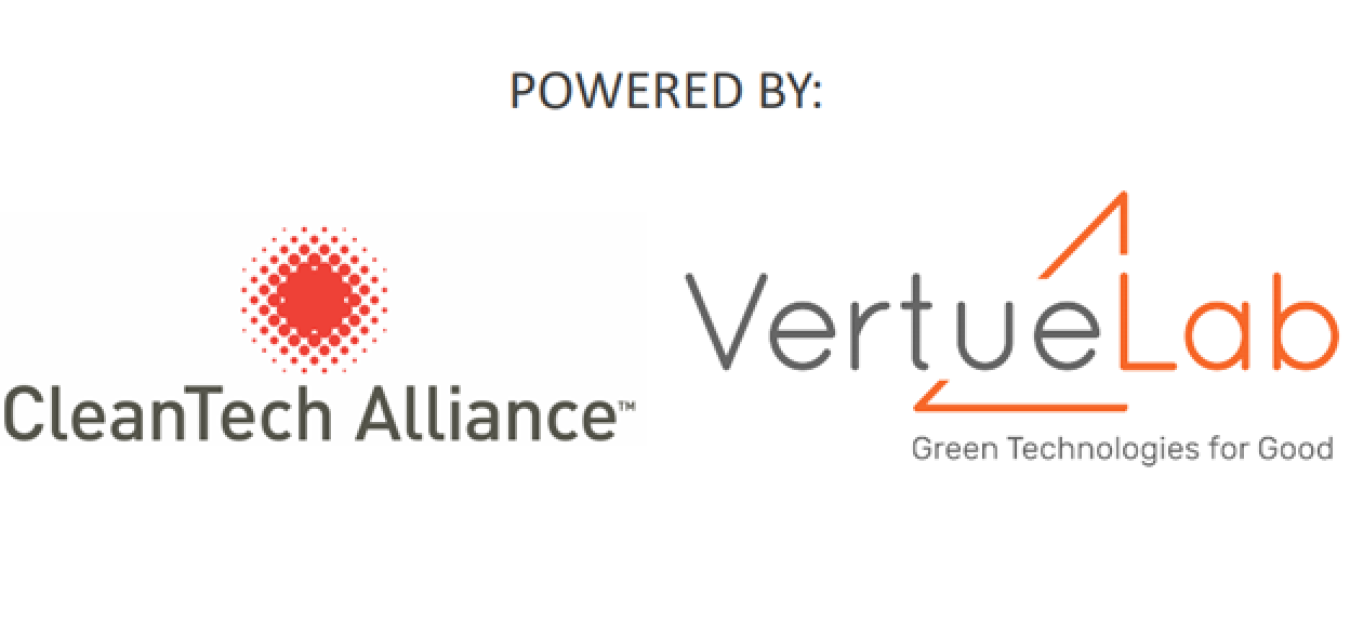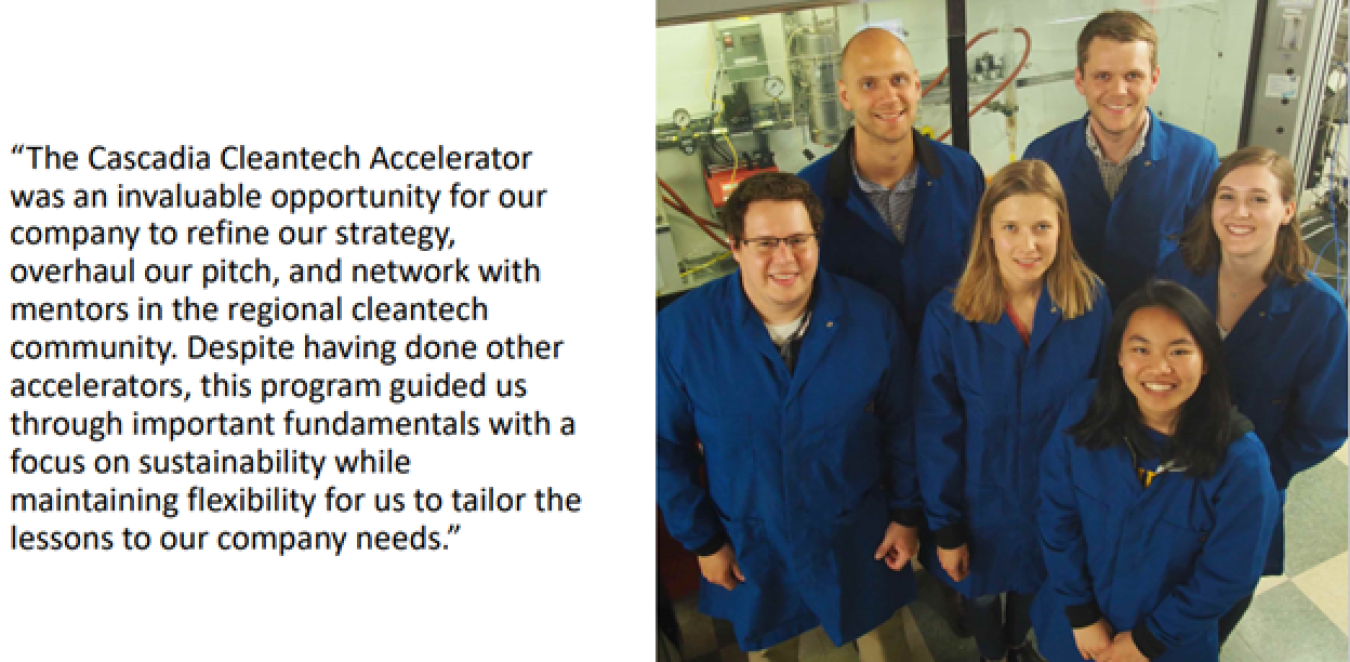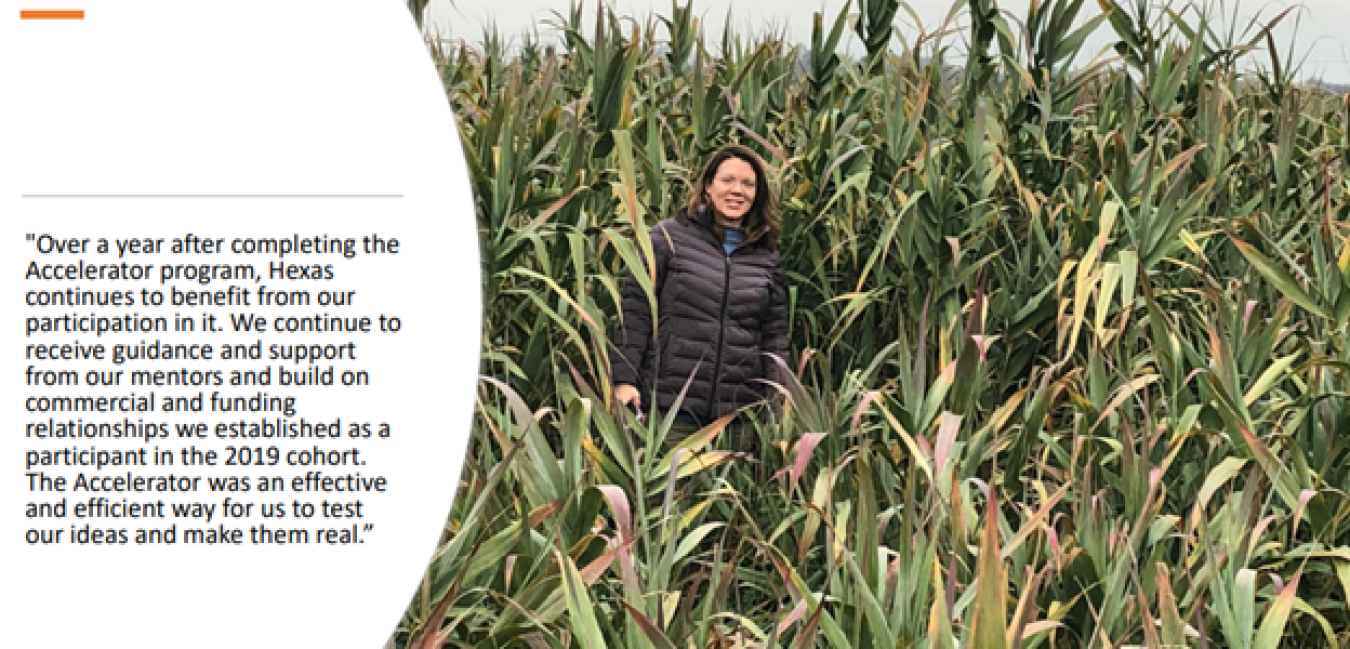EPIC Prize Winner - Cascadia CleanTech Accelerator
Office of Technology Transitions
September 2, 2021
An interview with EPIC prize winner Cascadia CleanTech Accelerator:
OTT: Congratulations on receiving $50,000 as part of OTT’s EPIC prize! First, please tell us a little more about your company/who you are.
Cascadia CleanTech Accelerator: Cascadia CleanTech Accelerator is a business accelerator program powered by the CleanTech Alliance and VertueLab. The mostly virtual 18-week program delivers mentorship, curriculum, connections and funding opportunities designed specifically for early-stage hardware cleantech startups. CCA was established in 2016 and to date, over 50 companies have gone through the program.
Our multi-state collaboration stretches its support into Oregon, Washington, Western Canada, Alaska and Idaho. Cleantech Alliance facilitates the generation and growth of cleantech companies through member to member connections and networking, educational and informational events and programs, as well as pursuing and supporting clean energy policies. Established in 2007, VertueLab is a nonprofit fighting climate change by providing funding, holistic entrepreneurial support, and networking opportunities to cleantech startups. CCA leverages the vast networks of both organizations. If there is someone working in cleantech in the Pacific Northwest, one of us will know about it and have a connection there.

OTT: Will you give us a brief description of your winning program plan?
Cascadia: Our Accelerator program is designed to help bring innovative hardware technologies to market with the goal of making lab to market a reality. As we continue to build a robust network (regional and beyond) to strengthen the entire innovation lifecycle we also have room for growth.
We are the cleantech connectors for the Pacific Northwest ecosystem. We source startups from regional competitions, national labs, universities, incubators, and accelerators. We make curated connections between the startups and university resources, public and private capital, and mentorship from corporations.
As we look upon the coming years, we need to continue to discover new partnerships while deepening and expanding on existing partnerships. We are especially prioritizing prospective corporate partnerships as an opportunity to help them execute on their sustainability goals, fund pilot projects for supported companies, and mentor young startups. We are also exploring collaboration, learning, and pipeline opportunities with other accelerators and incubators; locally, regionally, and nationally.
Opportunity 1: Pipeline Diversity & Access
There are existing areas in our region where we have not seen company representation yet feel like we should be. We need to have deliberate and strategic efforts to draw out and connect with tech talent in these areas to help develop or inspire innovation.
Opportunity 2: Access to Capital
Early stage startups are in desperate need for development capital from private, federal, state, philanthropists. Our role is to facilitate the connections needed to these funding sources and to even manage special opportunities such as prototype grants.
To successfully implement our growth strategy, these opportunities will be met with partnerships including state and local entities, private organizations, non-government organizations, existing and untapped connections within academic institutions and national labs.

OTT: How has this program impacted your region/local community?
Cascadia: We are proud of the alumni who are currently still in business and raising money and generating revenue. This directly contributes to jobs in our region. We’ve had outside investors seek us out to learn more about our alumni.
OTT: When it comes to lessons learned with building out your regional innovation ecosystem, what is one thing that has worked and one thing that has not?
Cascadia: The Pacific Northwest is a highly collaborative ecosystem. It’s very important to take the time to get to know individuals at the prospective partnership entities and gain a solid understanding of their needs, political environment and constraints. If through those conversations you cannot identify the “win-wins” for the partnerships, it most likely will not be a fruitful relationship. Also, it’s important to recognize it takes time to learn about each other and when the partnerships are rushed, their value to each party is sometimes questionable.

OTT: What does it mean to be an accelerator/incubator during the coronavirus pandemic?
Cascadia: Luckily, CCA was already mostly a virtual program so we were fairly prepared for the all virtual world. However, we had a few in-person activities that proved to be quite difficult to replicate virtually such as the side conversations that can result in stronger relationships within the cohort and also being unable to replicate the true stress of giving a pitch in front of a group of judges in person. Some things work really well on Zoom (or other meeting platforms), but some things just make more sense and have better outcomes when in person.
OTT: What is one lesson learned from this virtual experience?
Cascadia: Be savvy with Zoom! Use the breakout rooms for purposeful networking and take advantage of everyone being on Zoom by inviting alumni to more of the virtual events within current programming. And no meetings longer than 90 minutes as people’s attention and energy wanes if you go longer.
OTT: How can we stay up to date on the latest news or events with your company?
Cascadia: You can visit the CCA website and sign up for the Cleantech Alliance and VertueLab e-news which can be found on their respective home pages.
Thank you Cascadia! Congratulations again on being named an EPIC prize winner.
To head back to the EPIC blog series homepage, click here.

